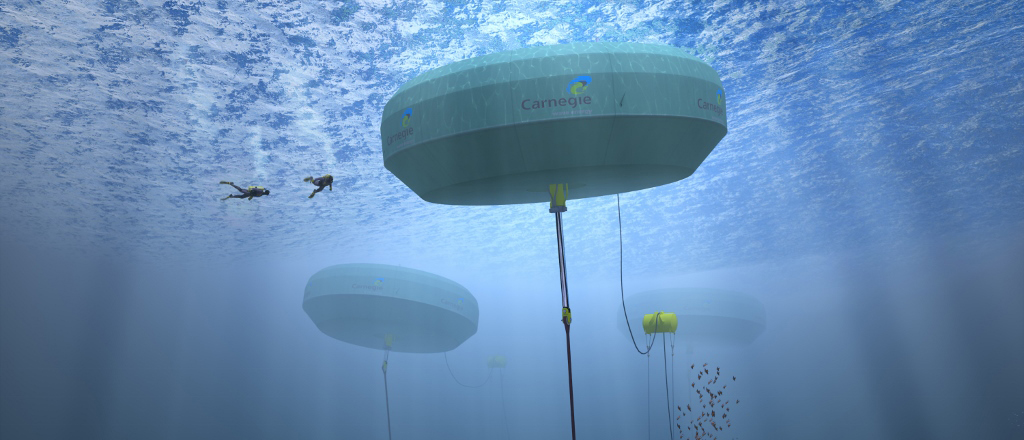The administrators appointed at Western Australia’s developer Carnegie Clean Energy have decided to sell or wind down the company’s solar microgrid arm and recapitalize its core wave power business.
According to Carnegie’s latest statement, director and shareholder Grant Mooney, alongside Mooney & Partners’ key stakeholder Asymmetric Creditor Partners, agreed in principle to provide interim funding support to administrators Korda Mentha. As part of the recapitalisation proposal, there will be no further losses from the solar microgrid business to be funded by shareholders, the company said in statement.
“The recapitalization proposal being developed will allow shareholders to participate in that future through an equity raising whilst dealing with the current creditor build-up and legacy issues associated with the solar-battery business,” reads the statement. “The board and management team is progressing with the recapitalization proposal in earnest to enable shareholders the ability to show their support for the clean energy potential and intellectual property it has developed.”
The developer and its three subsidiaries EMC Co, Energy Made Clean and EMC Engineering Australia entered administration last week just days after the Western Australia government had terminated the $16 million financial assistance agreement for the Albany wave energy project. The government said the unexpected proposal to change Federal Government’s R&D tax incentive scheme contributed to destabilization of the company’s financial position.
A week earlier, Carnegie posted its overdue half-year results, revealing a loss of $45 million, including write-downs on the value of its CETO wave technology and its solar microgrid business of nearly $40 million. The company’s wave technology was written down by $32 million, which came on top of a $35 million write-down it posted for the first half of 2018.
Carnegie’s troubled solar microgrid subsidiary Energy Made Clean ended with a $6 million write-down, despite the completion of CSIRO Pathfinder and RAAF Delamere microgrid projects, a microgrid at a naval base on Garden Island, and WA’s first operational merchant utility solar project, the 10 MW Northam Solar Farm.
Identifying the EMC losses as one of the main reasons for the reduction in market capitalization, the developer said it was still looking at divestment opportunities, following a failed deal to merge its microgrid subsidiary with TAG Pacific’s M-Power. Carnegie said earlier it would continue to operate the EMC business, albeit for a finite period of time on a substantially reduced cost structure, while actively exploring all other options to reduce the cash burn. It noted potential buyers were conducting due diligence inquiries.
Carnegie took full ownership of Energy Made Clean in a $13 million deal in 2016 looking to tap what then-managing director Michael Ottaviano described as “a hugely growing market space”.
This content is protected by copyright and may not be reused. If you want to cooperate with us and would like to reuse some of our content, please contact: editors@pv-magazine.com.









By submitting this form you agree to pv magazine using your data for the purposes of publishing your comment.
Your personal data will only be disclosed or otherwise transmitted to third parties for the purposes of spam filtering or if this is necessary for technical maintenance of the website. Any other transfer to third parties will not take place unless this is justified on the basis of applicable data protection regulations or if pv magazine is legally obliged to do so.
You may revoke this consent at any time with effect for the future, in which case your personal data will be deleted immediately. Otherwise, your data will be deleted if pv magazine has processed your request or the purpose of data storage is fulfilled.
Further information on data privacy can be found in our Data Protection Policy.